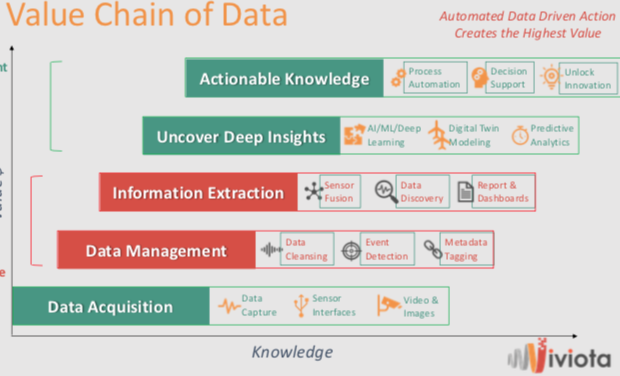Part 3 — The AI Bottleneck Nobody Is Talking About
CES 2026: The Line Between Science Fiction and Engineering Just Disappeared
Topics: Test, Big Data, Analytics, Viviota, SAP, Sensors, automotive industry, Real-time computing, COTA, U.S. Grand Prix, Autonomous Vehicles, Sensor Data, Machine Learning, aerospace, Analog Data, ADAS, Hybrid Cars, NIWeek, ESS, ANC, Sensor Data Management, data cleansing, simulation, webinar, Smart Factories, Manufacturing, Intelligent Data handling, Software, LabVIEW, Build Back Better Act, Digital transformation
Where Real-World Engineering Data Meets Synthetic Intelligence
Topics: Engineering Data, Big Data, Analytics, automotive industry, Electric Grid, Autonomous Vehicles, Machine Learning, aerospace, Hybrid Cars, Electric Cars, Sensor Data Management, Edge Computing, Factory 4.0, Manufacturing, Intelligent Data handling, Software, Digital transformation
CES 2026 Blog Series: Mind-boggling technology observations
Over the next few weeks, I’ll be sharing a short series of observations from CES 2026 across three themes:
Topics: Engineering Data, Big Data, Analytics, IIoT, Autonomous Vehicles, Sensor Data, Machine Learning, Analog Data, Electric Cars, ANC, Sensor Data Management, Edge Computing, Factory 4.0, Manufacturing, Intelligent Data handling, LabVIEW, Digital transformation
Stop Losing Time: How Engineering Data Can Save Millions
Engineering teams possess an underutilized goldmine in today’s fast-paced industrial landscape: their data. From sensor readings and vibration logs to video, sound, and test metadata, engineering data holds critical insights that can accelerate innovation, reduce costs, and safeguard operations against failure. Yet, a significant portion of engineering time is wasted merely searching for, organizing and wrangling data to make it usable.
Topics: Engineering Data, Big Data, Analytics, Viviota, IIoT, automotive industry, Autonomous Vehicles, Sensor Data, Machine Learning, aerospace, Analog Data, Sensor Data Management, data cleansing, simulation, Edge Computing, Manufacturing, Intelligent Data handling, Build Back Better Act, EV, Digital transformation
NVIDIA Show Report: AI & ML Take Center Stage at the "Woodstock of AI"
Topics: Engineering Data, Big Data, automotive industry, Autonomous Vehicles, Machine Learning, Analog Data, data cleansing, Edge Computing, Intelligent Data handling, Digital transformation
The 5 Things Engineering Teams Should Be Doing Right Now to Utilize AI & ML Technologies
Listen to our blog:
According to a recent survey, 47% of companies today consider AI/ML as a top priority in 2024. Yet, according to Harvard Business Review “cross-industry studies show, on average, less than half of an organization's structured data is actively used in making decisions—and less than 1% of its unstructured data is analyzed or even used at all.” 1
This statistic should concern R&D or Engineering decision-makers. Companies are drowning in data, and very few companies can leverage their data because they are stuck trying to find, access, and connect various data sources. So first ask yourself these three questions:
Topics: Analytics, simulation, Intelligent Data handling, Digital transformation
The 5 Things Engineering Teams Should Be Doing Right Now to Utilize AI & ML Technologies
According to a recent survey, 47% of companies today consider AI/ML as a top priority in 2024. Yet, according to Harvard Business Review “cross-industry studies show, on average, less than half of an organization's structured data is actively used in making decisions—and less than 1% of its unstructured data is analyzed or even used at all.” 1
This statistic should concern R&D or Engineering decision-makers. Companies are drowning in data, and very few companies can leverage their data because they are stuck trying to find, access, and connect various data sources. So first ask yourself these three questions:
Topics: Analytics, simulation, Intelligent Data handling, Digital transformation
Are You “Digital Transformation-Ready”?
So, your customers are committed to a Digital Transformation (DT) journey. How does this affect the engineering organization? Engineering executives expect integrating digital technology into all aspects of the business will deliver great value. They expect DT to fundamentally change and improve business operations. As part of the DT journey, engineering teams want to unify and update systems, organizations, and processes to support next-generation product development cycles. Their engineering tools requirements, infrastructure ,and processes will be viewed through this lens. Are your offerings ready to support your customers’ DT projects with scalable, digital enterprise-ready architecture and capabilities?
Topics: Engineering Data, Intelligent Data handling, Digital transformation
Harvard Business Review[i] reported that cross-industry studies show, on average, less than half of an organization's structured data is actively used in making decisions—and less than 1% of its unstructured data is analyzed or even used at all.
Topics: Analog Data, Sensor Data Management, webinar, Edge Computing, Intelligent Data handling
Ghostwalk Your Automotive Data - Making Sense of Sensor Data
Topics: Engineering Data, Analytics, Autonomous Vehicles, Sensor Data, Analog Data, data cleansing, Edge Computing, Intelligent Data handling









